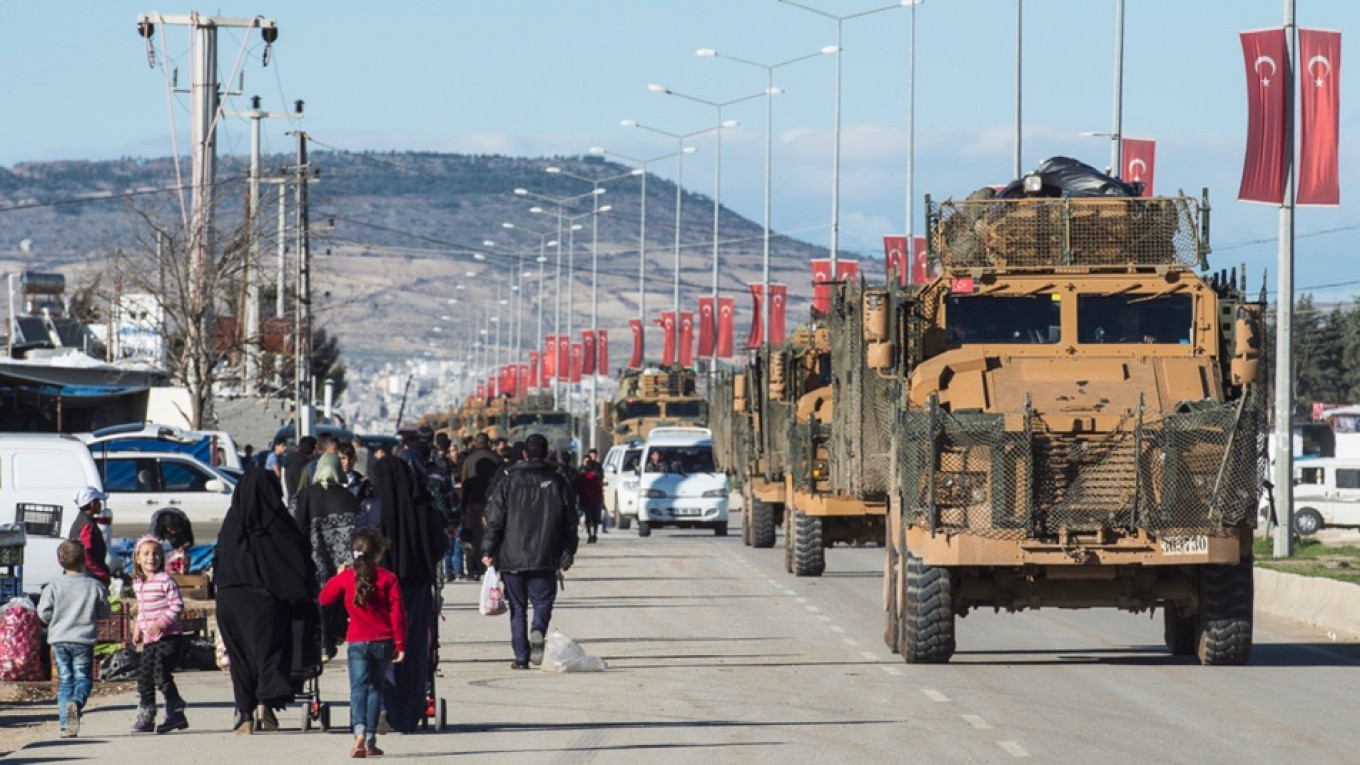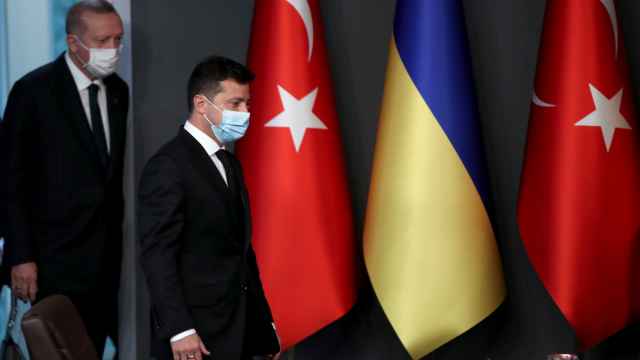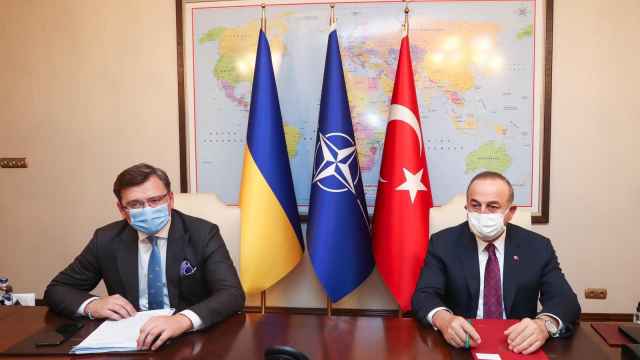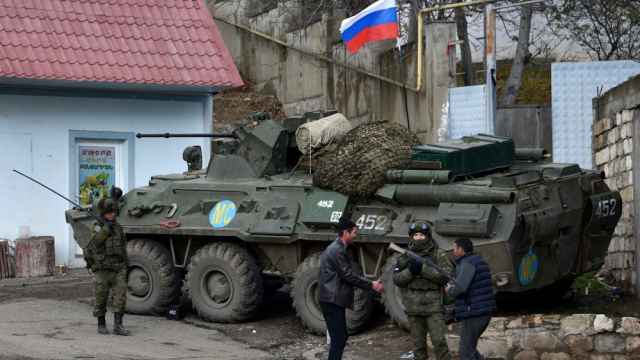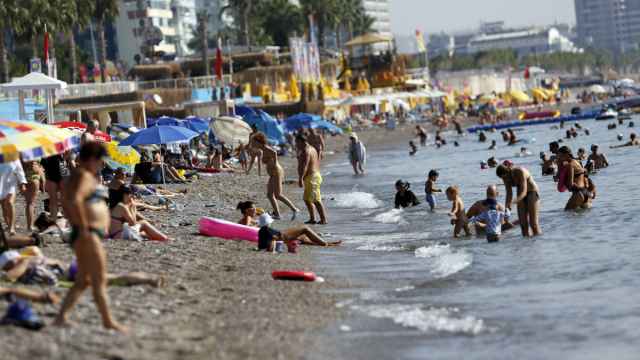Russia told Turkey on Thursday it had no right to create a "safe zone" inside Syria unless it sought and received the consent of President Bashar Assad, signaling tensions as a three-way summit on the Syrian conflict began.
President Vladimir Putin, one of Assad's closest allies, was hosting the summit in the Black Sea resort of Sochi to discuss the future of Syria with Turkish President Tayyip Erdogan and Iranian President Hassan Rouhani.
All three countries have forces on the ground in Syria where they have coordinated their efforts despite sometimes differing priorities and interests.
But a planned withdrawal of U.S. forces from Syria, announced by President Donald Trump in December, has engendered new tensions between Moscow and Ankara in particular.
Turkey wants to set up what it calls a safe zone in northeast Syria, parts of which are now controlled by U.S. forces, and for the area near the Turkish border to be cleared of the U.S.-backed Kurdish YPG militia.
But, speaking ahead of the start of the Sochi summit on Syria, a Russian Foreign Ministry spokeswoman said Ankara would need Assad's green light to create any safe zone inside Syrian borders.
"The question of the presence of a military contingent acting on the authority of a third country on the territory of a sovereign country and especially Syria must be decided directly by Damascus," Maria Zakharova said in answer to a question about the Turkish safe zone plan. "That's our base position."
But that is likely to be an unappealing prospect for Erdogan, who has called for Assad to step down after years of civil war that has shattered his country.
Idlib pressure
The Kremlin on Thursday also made clear that its patience with Turkey over a joint deal to enforce a demilitarized zone in the northwestern Idlib region was running short.
Moscow and Ankara brokered the deal in September, saying they wanted the region free of heavy weapons and jihadists. The agreement helped avert a government assault on the region, the last major bastion of Assad's opponents.
But Moscow has since complained that Islamist militants who used to belong to the Nusra Front group are now in control there, and wants military action to drive them out.
Ankara is less keen as it is concerned about potential refugee flows from Idlib in the event of a military operation, and wants to retain its influence in a region on its border.
It also does not want developments in Idlib to distract from its plan to set up a safe zone in the northeast.
Kremlin spokesman Dmitry Peskov said Moscow wanted action on Idlib, referring to the "continued presence there of terrorist groups."
"... Implementing the decision on Idlib is one of the overall components in our policy to stabilise Syria to definitively create the conditions for things to move onto a political settlement," said Peskov, who made clear Putin would press Erdogan on the subject later on Thursday.
A Message from The Moscow Times:
Dear readers,
We are facing unprecedented challenges. Russia's Prosecutor General's Office has designated The Moscow Times as an "undesirable" organization, criminalizing our work and putting our staff at risk of prosecution. This follows our earlier unjust labeling as a "foreign agent."
These actions are direct attempts to silence independent journalism in Russia. The authorities claim our work "discredits the decisions of the Russian leadership." We see things differently: we strive to provide accurate, unbiased reporting on Russia.
We, the journalists of The Moscow Times, refuse to be silenced. But to continue our work, we need your help.
Your support, no matter how small, makes a world of difference. If you can, please support us monthly starting from just $2. It's quick to set up, and every contribution makes a significant impact.
By supporting The Moscow Times, you're defending open, independent journalism in the face of repression. Thank you for standing with us.
Remind me later.


